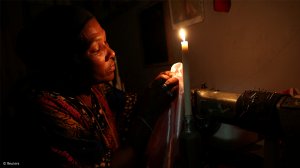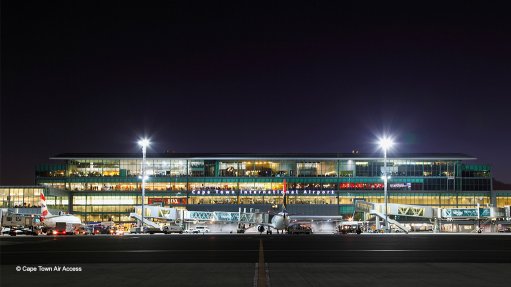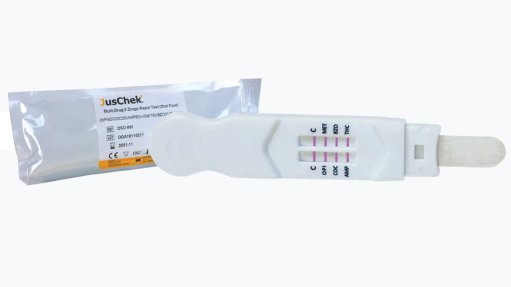Stage 16 loadshedding code seeks to reduce human error not signal imminent surge in cuts – Nersa

NRS Association management committee chairperson Vally Padayachee explains the reason for the new loadshedding standard at a Nersa briefing. Recorded & Editing by Shadwyn Dikinson. 16.4.2024
The National Energy Regulator of South Africa (Nersa) has belatedly moved to quell concern that its recent approval of a new loadshedding code of practice, which increases the number of potential stages from eight to 16, represents a signal that the prospect for higher levels of loadshedding is imminent.
Following extensive public consultations undertaken by the National Rationalised Specifications (NRS) Association of South Africa, the third edition of the NRS048-9 standard was approved by the regulator for use by Eskom and municipal system operators during times of electricity constraint.
It increases the number of loadshedding stages from the eight outlined in the second edition to 16 with the aim of preventing the system from succumbing to a blackout; a scenario from which it could take South Africa weeks to recover.
At Stage 16, which Nersa fulltime regulator for electricity Nhlanhla Gumede described as a “highly unlikely scenario”, 80% of demand would go unmet, and South African households and businesses would experience 32 hours of power cuts over a 32-hour period.
At Stage 8, a level not yet implemented by Eskom, 40% of the load would be shed, equating to 16 hours over 32 hours.
The utility has already implemented loadshedding at Stage 6 on several occasions, which under the third edition of NRS048-9, involves 30% of the load not being met, or 12 hours of loadshedding over 32 hours.
In a media briefing hosted partly to explain the code and partly to allay fears, Gumede stressed that the approval of the new code was “not an indication that greater levels of loadshedding are imminent”.
NRS Association management committee chairperson Vally Padayachee said the updated standard had been developed using a scenario-planning methodology across the entire country load so as to address critical uncertainties, “including the unlikely event of Stage 16”.
“In so doing, we significantly mitigated the propensity of human error,” he added.
Prior to the approval of the update to NRS048-9, Eskom and municipal system operators had no firm guidance regarding the implementation of loadshedding beyond Stage 8, which was left open to their discretion.
Padayachee argued that the lack of clear guidelines beyond Stage 8 posed a risk, particularly given that system operators would be making difficult decisions in an emergency situation where stress levels would be heightened, which could in turn increase the propensity for error.
The new code of practice, he added, would help prepare operators to protect the national electricity grid, as it outlined a structured and proactive approach to addressing a crisis should one arise.
Article Enquiry
Email Article
Save Article
Feedback
To advertise email advertising@creamermedia.co.za or click here
Press Office
Announcements
What's On
Subscribe to improve your user experience...
Option 1 (equivalent of R125 a month):
Receive a weekly copy of Creamer Media's Engineering News & Mining Weekly magazine
(print copy for those in South Africa and e-magazine for those outside of South Africa)
Receive daily email newsletters
Access to full search results
Access archive of magazine back copies
Access to Projects in Progress
Access to ONE Research Report of your choice in PDF format
Option 2 (equivalent of R375 a month):
All benefits from Option 1
PLUS
Access to Creamer Media's Research Channel Africa for ALL Research Reports, in PDF format, on various industrial and mining sectors
including Electricity; Water; Energy Transition; Hydrogen; Roads, Rail and Ports; Coal; Gold; Platinum; Battery Metals; etc.
Already a subscriber?
Forgotten your password?
Receive weekly copy of Creamer Media's Engineering News & Mining Weekly magazine (print copy for those in South Africa and e-magazine for those outside of South Africa)
➕
Recieve daily email newsletters
➕
Access to full search results
➕
Access archive of magazine back copies
➕
Access to Projects in Progress
➕
Access to ONE Research Report of your choice in PDF format
RESEARCH CHANNEL AFRICA
R4500 (equivalent of R375 a month)
SUBSCRIBEAll benefits from Option 1
➕
Access to Creamer Media's Research Channel Africa for ALL Research Reports on various industrial and mining sectors, in PDF format, including on:
Electricity
➕
Water
➕
Energy Transition
➕
Hydrogen
➕
Roads, Rail and Ports
➕
Coal
➕
Gold
➕
Platinum
➕
Battery Metals
➕
etc.
Receive all benefits from Option 1 or Option 2 delivered to numerous people at your company
➕
Multiple User names and Passwords for simultaneous log-ins
➕
Intranet integration access to all in your organisation


















